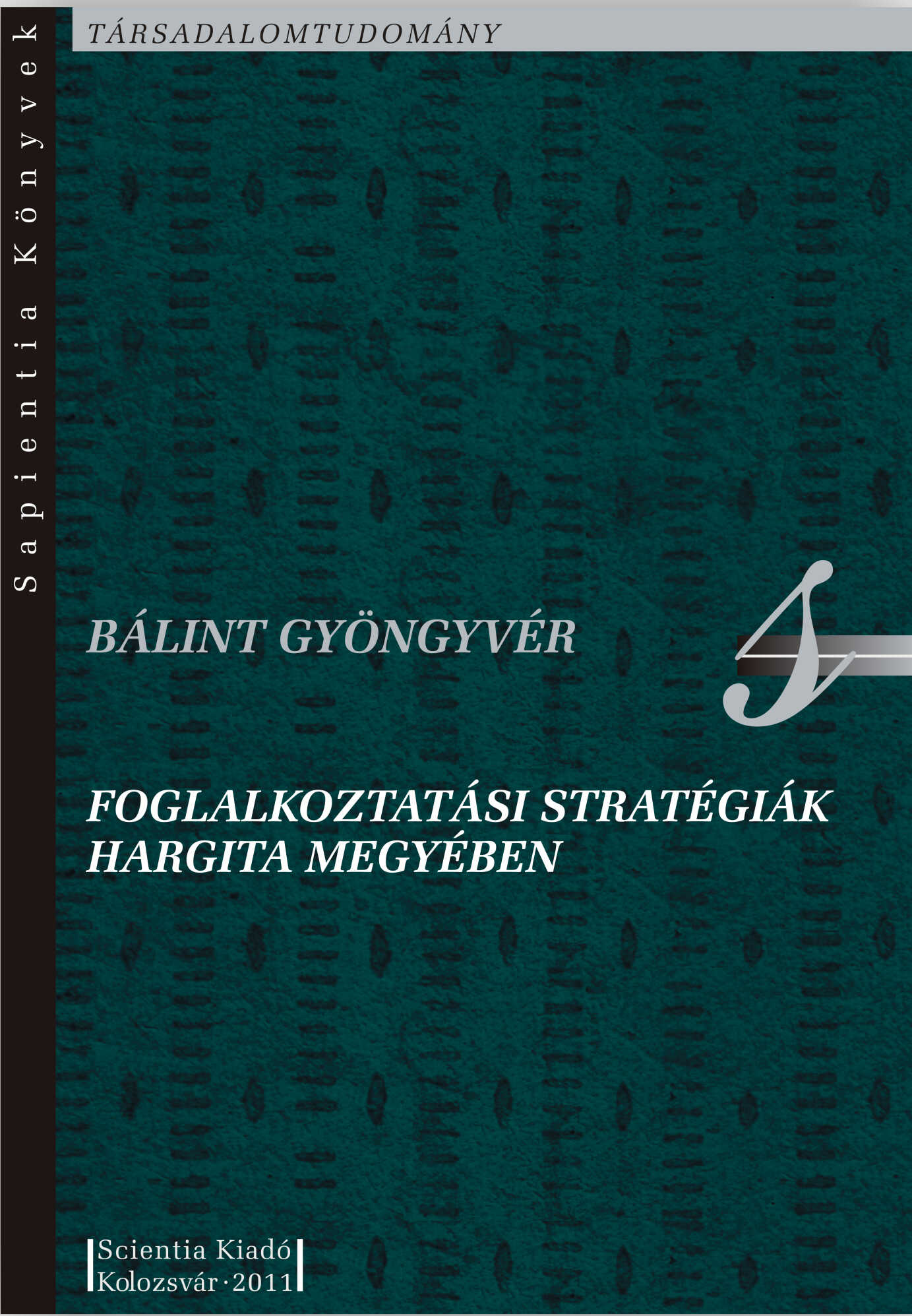Foglalkoztatási stratégiák Hargita megyében
Employment Strategies in Harghita County
Author(s): Gyöngyvér Bálint
Subject(s): Economy, Sociology
Published by: Scientia Kiadó
Keywords: labour market; medium-sized private enterprises; recruiting employees;
Summary/Abstract: In the last half of century, several researches prove that social networks play an important role in the transfer of job information on the labour market. The major part of the researches focuses on the employees, and the linked, employer-employee type data sets in the specific literature are conspicuously rare and unique. This paper aims to seize the characteristics of employment strategies, based on three case studies. The location of the research is Harghita County; all the three case studies were performed on medium-sized private enterprises which perform industrial activities characteristic to the county (construction, confection and lumber industry). Data obtained by the methods of semi-structured deep interview, questionnaires and document analysis were processed by organizations, therefore the reduced number of cases did not allow for a deeper statistical data processing. Based on international and regional researches, we set up three major hypotheses about the spread of informal recruitment and job search strategies. The hypothesis has been sustained considering all three enterprises from the employee’s point of view: regarding the informal job search strategies versus formal strategies, the informal methods are more frequent. In our case, analysing the three enterprises the rate lays between 54–77%, which means higher than the other measured quotas (27–64%). The employer’s side sustained the hypothesis in two companies. The frequent use of informal recruitment channels is motivated by the quality of these applicants. The use of the informal channels in recruitment in the case of two companies (construction and lumber industries), is motivated by the utmost large social networks of the employer. This also justifies the fact that these companies practice a passive recruitment. Since the important professional relationship networks at the textile enterprise seem to be significant, the main difference in the recruitment practice at the organization is not totally justified by the extent of the relationship capital. Although it cannot be shown directly from the research, the active or passive recruitment is also stated by the incomes, job security and the personality of employers. Within the informal channels, all three enterprises emphasize the strength of the weak ties. In finding a job or in recruiting employees, the professional relationships play the most important role, but employee referrals are not the most frequent informal recruitment methods.
Series: Sapientia Könyvek
- Print-ISBN-13: 978-973-1970-51-6
- Page Count: 168
- Publication Year: 2011
- Language: Hungarian
- Table of Content
- eBook-PDF
- Sample-PDF
- Introduction

